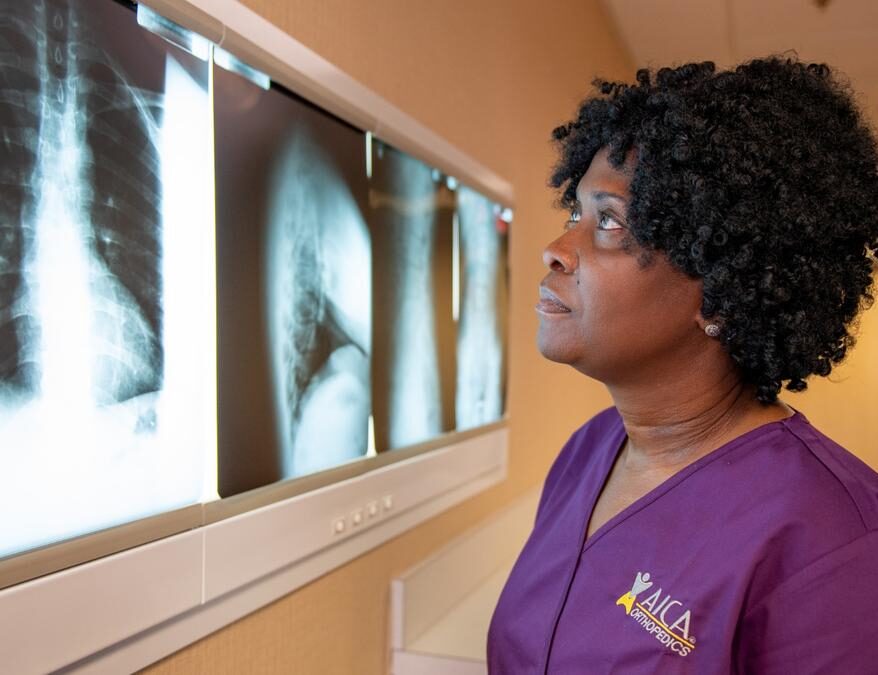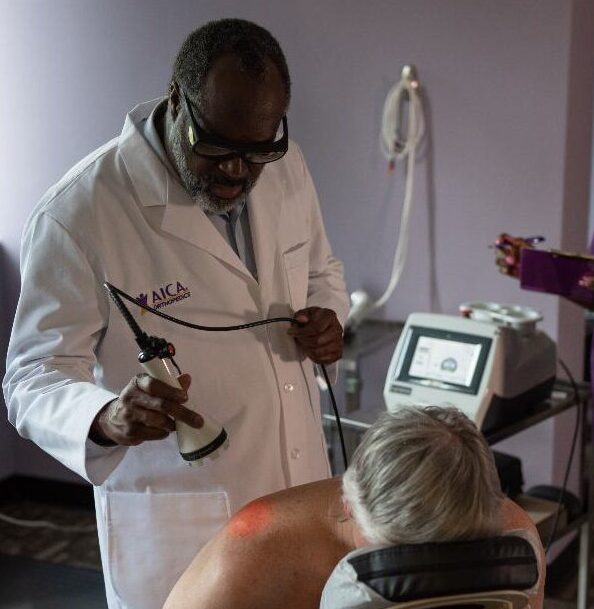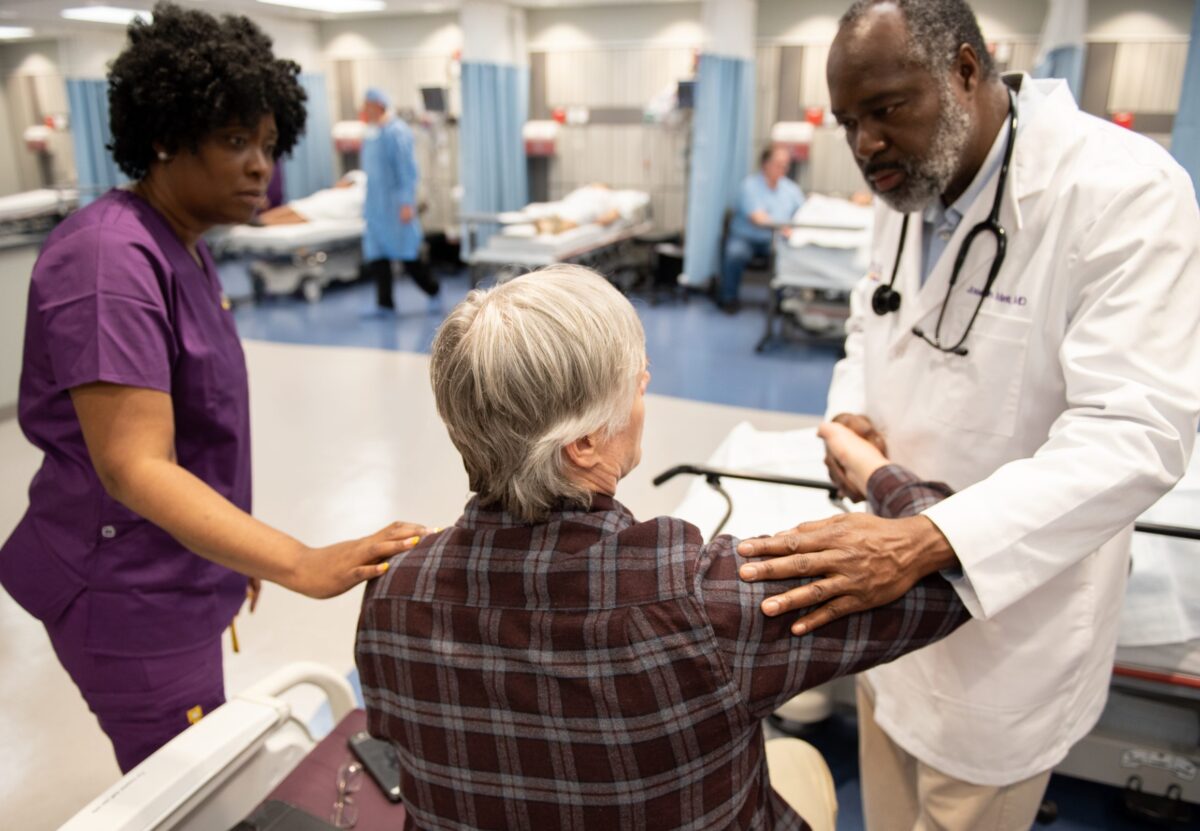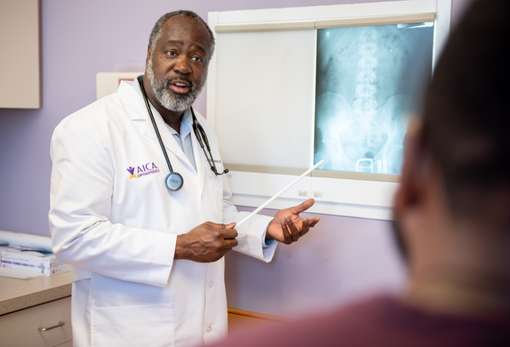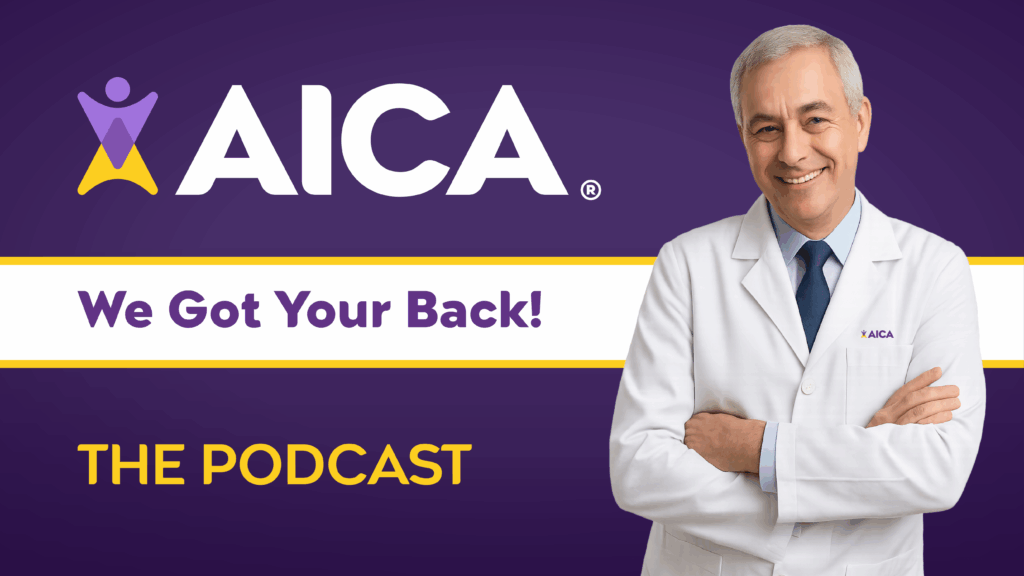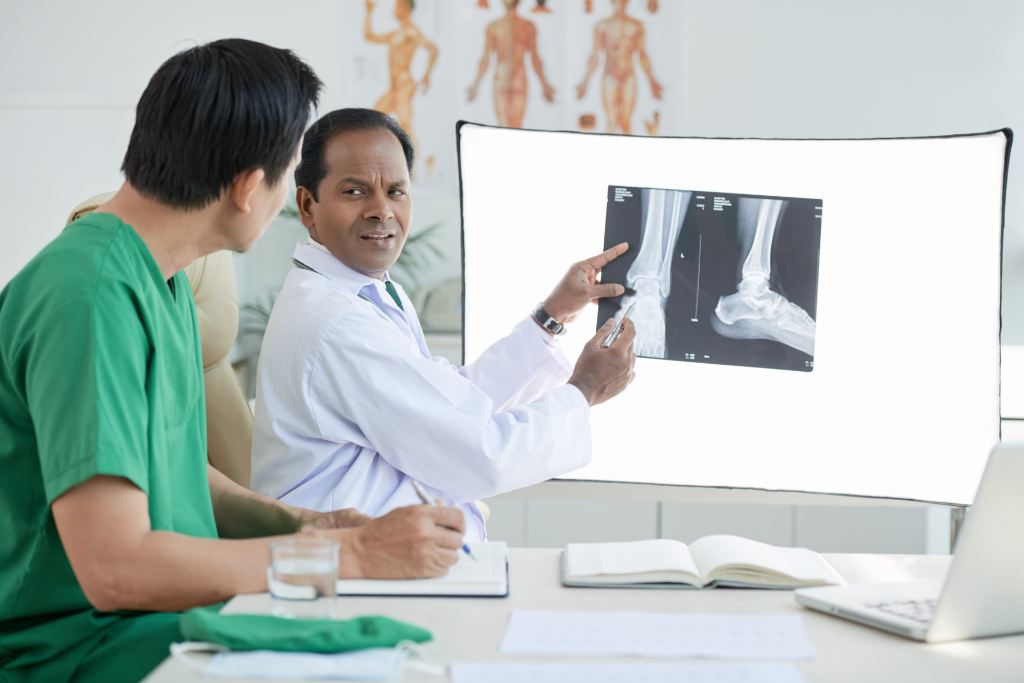Should I Go to Urgent Care or the ER After a Car Accident?
Not every injury needs a trip to the emergency room, but getting the right care quickly still matters. Here’s how to know where to go after a crash:
| For Serious or Life-Threatening Injuries |
For Non-Life-Threatening Injuries |
| If you’re experiencing severe trauma, chest pain, difficulty breathing, heavy bleeding, loss of consciousness, or possible head injury with serious symptoms, go to the ER immediately. |
If your injuries aren’t life-threatening but still painful or concerning—things like neck stiffness, joint pain, swelling, or soreness—urgent care is often the better and faster choice. |
READ MORE: Urgent Care vs Hospital ER After a Car Accident
Here’s why patients choose urgent care at AICA:
- Faster Access: Shorter wait times than most ERs
- Focused Treatment: We specialize in accident-related injuries
- No Out-of-Pocket Cost: If you weren’t at fault, you don’t pay
- Comprehensive Support: We coordinate care, imaging, and legal documentation in one place
If you’re not sure what kind of care you need, call us. We’ll help guide you to the right next step.
How Does AICA Handle Billing for Car Accident Urgent Care?
After a car accident, worrying about medical bills is the last thing you need. At AICA, if the accident wasn’t your fault, you won’t pay anything out of pocket. We bill the at-fault driver’s insurance directly so you can focus on recovery. In many cases, you may be legally entitled to $25,000 to $1,000,000 in medical care through a third-party liability claim. We help make sure that care is covered—fully and correctly—from day one.
Here’s how it works:
- Not at fault? No cost to you. We bill through a third-party liability claim.
- Unsure about coverage or at fault? We’ll check for MedPay on your auto policy or verify health insurance and walk you through next steps before starting treatment.
We don’t collect payment up front, and we never leave you guessing. All billing is held until your care is complete. Then, we’ll provide your records to you—or directly to your attorney, if one is involved. With a Letter of Protection and HIPAA authorization, we’ll coordinate with your legal team and submit everything to the insurance company.
LEARN MORE about Car Accident Medical Bills
